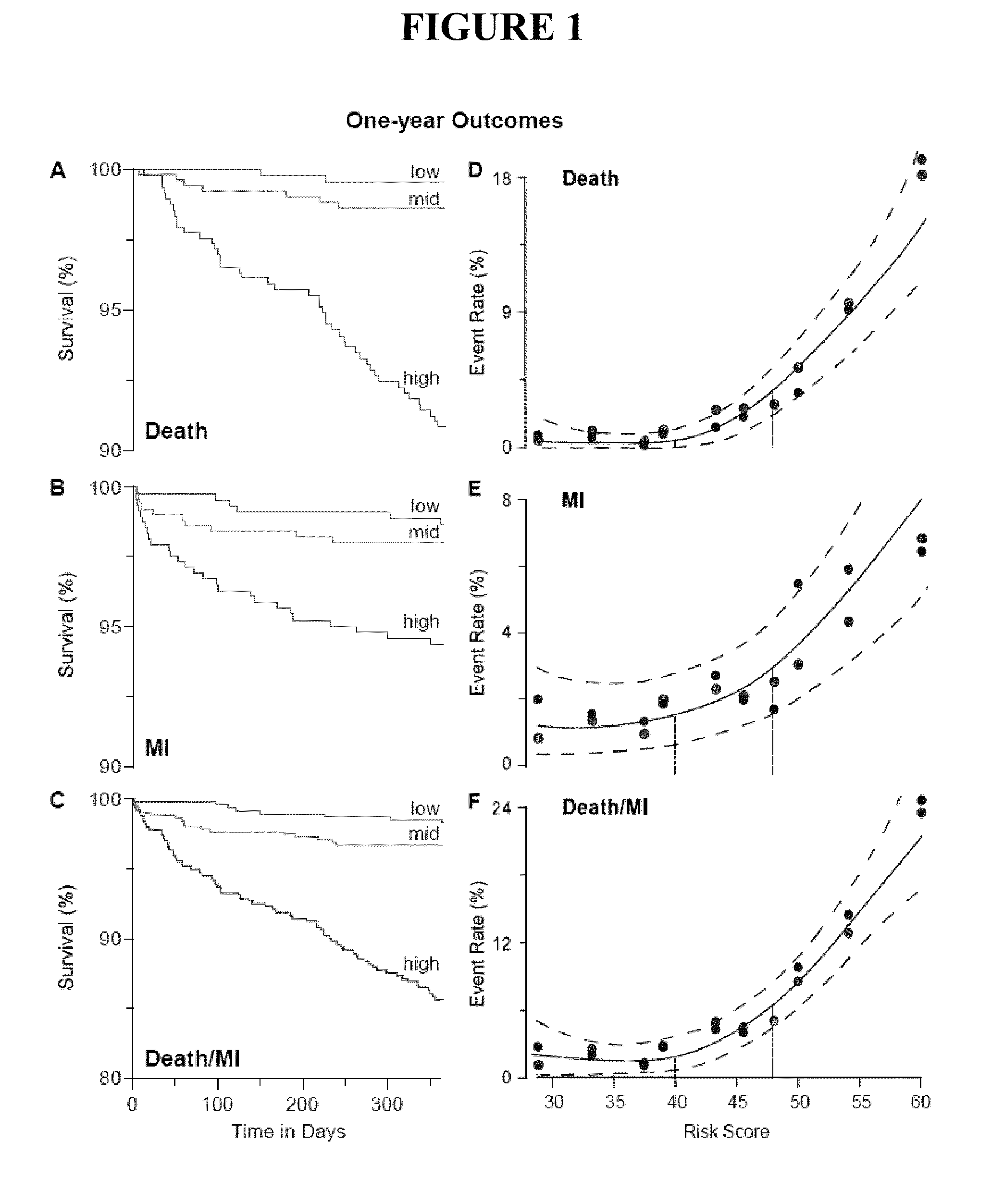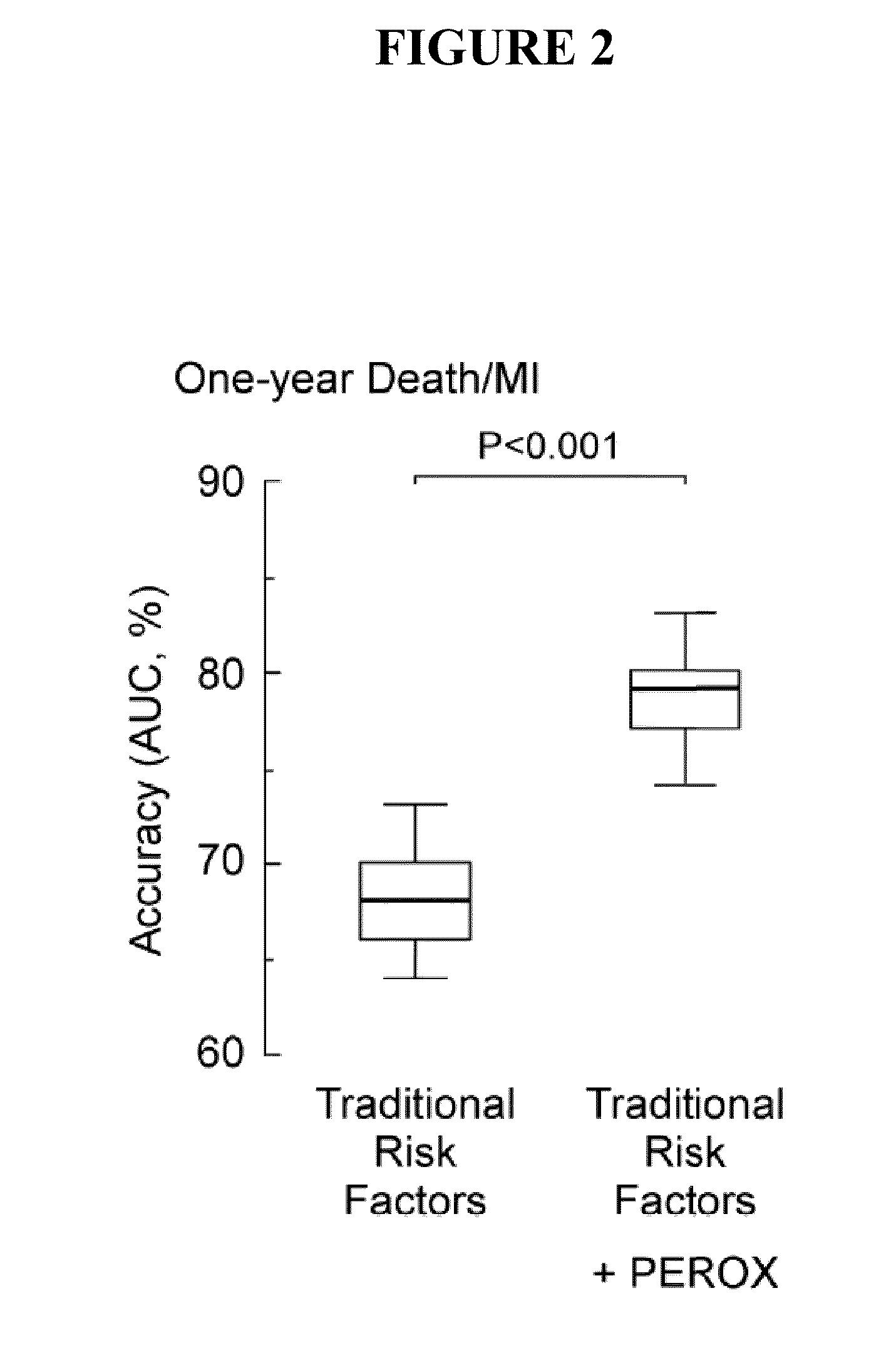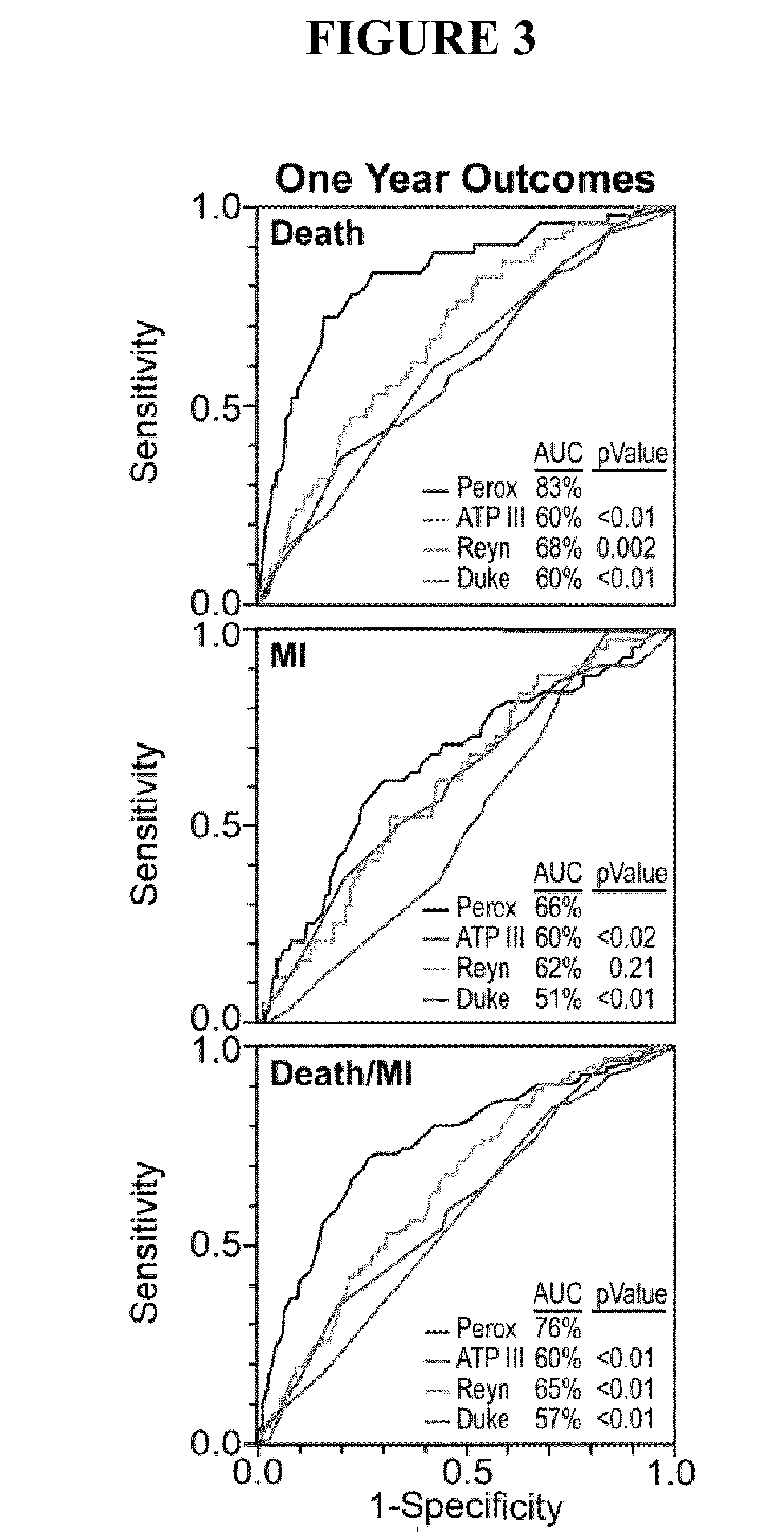Marker Detection for Characterizing the Risk of Cardiovascular Disease or Complications thereof
a cardiovascular disease and risk technology, applied in the field of cardiovascular disease risk or complications thereof, can solve the problems of limited application and difficulty in accurate determination of risk in stable cardiac patients
- Summary
- Abstract
- Description
- Claims
- Application Information
AI Technical Summary
Benefits of technology
Problems solved by technology
Method used
Image
Examples
example 1
Comprehensive Peroxidase-Based Hematologic Profiling for the Prediction of One-Year Myocardial Infarction and Death
[0112]This example describes methods and analyses used to screen a patient population for markers that predict cardiovascular disease.
[0113]Methods and Results: Stable patients (N=7,369) undergoing elective cardiac evaluation at a tertiary care center were enrolled. A model (PEROX) that predicts incident one-year death and MI was derived from standard clinical data combined with information captured by a high throughput peroxidase-based hematology analyzer during performance of a complete blood count with differential. The PEROX model was developed using a random sampling of subjects in a Derivation Cohort (N=5,895) and then independently validated in a non-overlapping Validation Cohort (N=1,474). Twenty-three high-risk (observed in ≧10% of subjects with events) and 24 low-risk (observed in ≧10% of subjects without events) patterns were identified in the Derivation Coho...
example 2
Comprehensive Hematology Risk Profile (CHRP)
Risk Predictor for One Year Myocardial Infarction and Death Using Data Generated by Conventional Hematology Analyzers During Performance of a Routine CBC with Differential
[0160]This example successfully tests the hypothesis that using only information generated from analysis of whole blood with a general hematology analyzer during the performance of a traditional CBC with differential, high and low risk patterns may be identified allowing for development of a Comprehensive Hematology Risk Profile (CHRP), a single laboratory value that accurately predicts incident risks for non-fatal MI and death in subjects.
[0161]Methods: 7,369 patients undergoing elective diagnostic cardiac evaluation at a tertiary care center were enrolled for the study. An extensive array of erythrocyte, leukocyte, and platelet related parameters were captured on whole blood analyzed from each subject at the time of performance of a CBC and differential. The patients we...
example 3
CHRP (PEROX) Model
[0176]This Example successfully tests the hypothesis that using only information generated from analysis of whole blood with a hematology analyzer during the performance of a traditional CBC with differential including peroxidase based measurements, high and low risk patterns may be identified allowing for development of a Peroxidase-based Comprehensive Hematology Risk Profile (CHRP (PEROX)), a single laboratory value that accurately predicts incident risks for non-fatal MI and death in subjects.
[0177]Methods: 7,369 patients undergoing elective diagnostic cardiac evaluation at a tertiary care center were enrolled for the study. An extensive array of erythrocyte, leukocyte, and platelet related parameters were captured on whole blood analyzed from each subject at the time of performance of a CBC and differential. The patients were randomly divided into a Derivation (N=5,895) and a Validation Cohort (N=1,473). CHRP (PEROX) was developed using Logical Analysis of Data...
PUM
 Login to View More
Login to View More Abstract
Description
Claims
Application Information
 Login to View More
Login to View More - R&D
- Intellectual Property
- Life Sciences
- Materials
- Tech Scout
- Unparalleled Data Quality
- Higher Quality Content
- 60% Fewer Hallucinations
Browse by: Latest US Patents, China's latest patents, Technical Efficacy Thesaurus, Application Domain, Technology Topic, Popular Technical Reports.
© 2025 PatSnap. All rights reserved.Legal|Privacy policy|Modern Slavery Act Transparency Statement|Sitemap|About US| Contact US: help@patsnap.com



